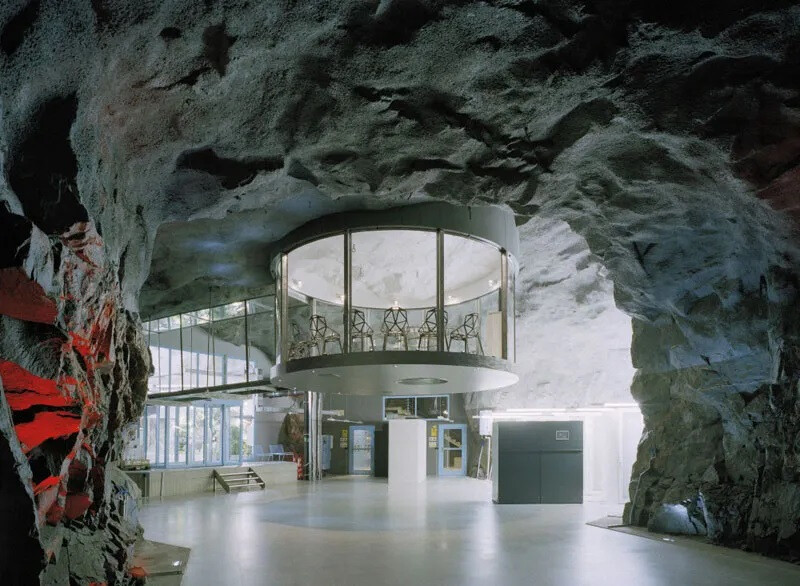
Gothenburg, Sweden - Swedish data center specialist Bahnhof is turning heads in the industry with its ambitious plan to construct a large-scale underground data center within a World War II-era bunker located in the heart of Gothenburg.
Bahnhof recently announced the acquisition of the "Bunkerberget" site in Gothenburg's Gamlestaden district from Bunkerberget AB. While specific contract terms remain undisclosed, Bahnhof is moving forward with its bold vision to repurpose this historic subterranean space into a state-of-the-art data center.
From Air Raid Shelter to Digital Heartbeat
Originally built as an air raid shelter for Gothenburg residents during World War II, Bunkerberget was later expanded during the Cold War into an industrial bunker intended for wartime production by the prominent Swedish bearing manufacturer SKF (Svenska Kullagerfabriken). SKF sold the site to Bunkerberget AB in 2017, and now, with Bahnhof's acquisition, this once-forgotten underground space is poised to become a crucial infrastructure hub for the digital age.
Vast Underground Space Boasts 9-Meter Ceilings
The Bunkerberget's underground expanse covers approximately 6,000 square meters (64,585 square feet) with impressive ceiling heights reaching up to 9 meters. The total site area spans a massive 28,000 square meters (301,390 square feet). While Bahnhof has yet to release specific timelines or detailed specifications for the data center development, their recent financial report suggests that construction is expected to commence after the summer.
Skate Park Seeks New Home Amidst Transformation
Interestingly, a portion of the Bunkerberget site is currently home to a skate park. According to local media reports, skaters have freely used the space since around 1998, and "Bunkerberget Skatepark," operated by the Gothenburg Skateboard Association (GSF), recently announced via Facebook that their lease agreement would not be renewed after mid-August, prompting a search for a new location. In the past, parts of the bunker have also been used as an event space known as "Berg211."
Bahnhof's Seventh Data Center, Expanding Secure Bunker Facilities
Bunkerberget will mark Bahnhof's seventh data center and its second facility housed within a bunker. Bahnhof currently operates four data centers in Stockholm and one each in Malmö and Kista. Notably, their "Pionen" data center, located beneath Vita Bergen in Södermalm, Stockholm, is famously situated within a nuclear-attack proof bunker originally built in the 1940s to protect government functions in the event of war.
Bahnhof CEO Jon Karlung expressed his enthusiasm for the project on X (formerly Twitter), stating, "Really excited about this project! Will make Gothenburg a European digital harbor for robust communication and trade. Want to include human elements in some form. Bunkerberget will be a place where machines and people meet."
Growing Beyond Nordic Borders into Germany
Founded in 1994, Bahnhof is a leading Swedish telecommunications and data center company offering a wide range of IT services, including broadband, colocation, and cloud computing. The company has expanded its operations beyond Sweden into Finland, Norway, Denmark, and Germany, establishing itself as a growing global data center player.
Underground Bunkers Offer Security and Sustainability
Utilizing a World War II bunker for a data center presents several advantages. Firstly, the deep underground location offers exceptional security, safeguarding data from external physical threats. Additionally, the natural cooling properties of subterranean spaces can significantly reduce the energy consumption required for data center operations, contributing to a more environmentally friendly and sustainable facility. Bahnhof is expected to leverage these benefits to create a high-performance, high-security, and eco-conscious data center.
Seeking Coexistence with Local Community, Supporting Skate Park Relocation
Bahnhof recognizes the history of the skate park on the Bunkerberget site and its importance to the local community. The company has expressed its willingness to actively cooperate to ensure a smooth relocation of the skate park. Jon Karlung's mention of incorporating "human elements" suggests Bahnhof's vision extends beyond a mere data storage facility, aiming to create a data center that interacts and coexists with the local community.
Bahnhof's plan to build a data center in Bunkerberget is being hailed as an innovative move, transforming a relic of the past into a future-oriented technological infrastructure. This historic bunker's metamorphosis into a cutting-edge data center is anticipated to contribute significantly to Gothenburg's growth as a vital digital hub in Europe.
[Copyright (c) Global Economic Times. All Rights Reserved.]



























